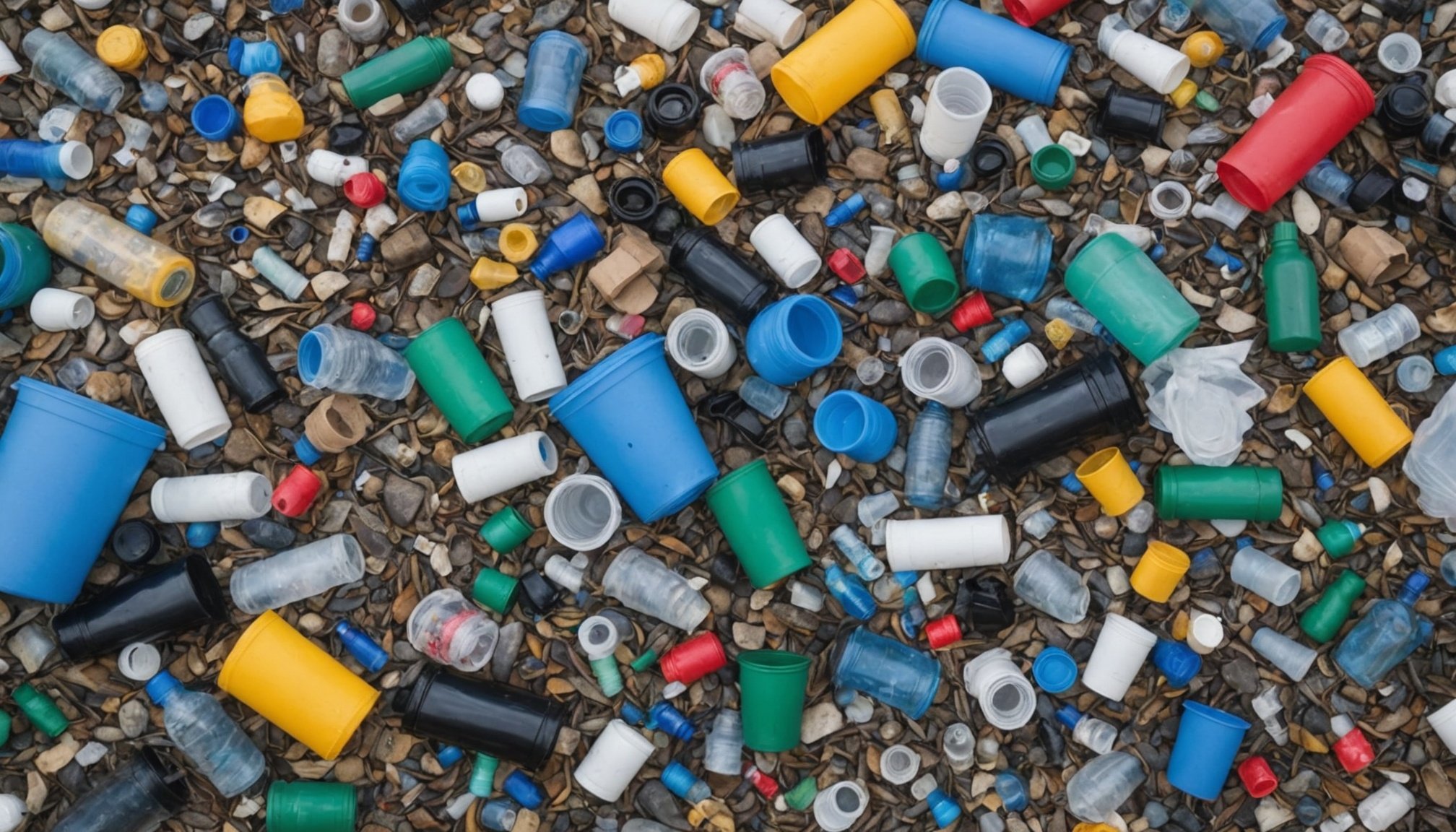For many years, plastic has been a significant part of our lives. Its versatility, durability, and low cost have made it the foundation of many industries. However, the environmental implications of plastic use, particularly single-use plastics, are increasingly becoming a global concern. The world’s oceans are rapidly becoming a plastic soup, as billions of pieces of plastic are dumped into them every year, causing unprecedented marine pollution.
The UK Government has acknowledged the gravity of this issue and has implemented new policies aimed at mitigating the impact of plastic waste on the ocean. Let’s delve into the details of these policies and how they aim to protect our marine environment.
Dans le meme genre : Unlocking 2023: Essential Energy Efficiency Standards for UK Rental Properties You Need to Know
The Ban on Single-Use Plastics
One of the UK’s most significant steps towards combating marine pollution is the ban on single-use plastics. Single-use plastics, including plastic straws, stirrers, and cotton buds, are one of the major contributors to plastic pollution. They are used once and then discarded, often ending up in our oceans and causing significant harm to marine life.
In a bold move to curb this issue, the UK government has introduced a complete ban on single-use plastics. This policy bans the supply and sale of plastic straws, stirrers and cotton buds, reducing the number of these items reaching our oceans each year.
Sujet a lire : Discover the Eligibility Criteria for the 2023 UK Rental Assistance Program
The Global Plastic Treaty
Recognising that the fight against plastic pollution requires global cooperation, the UK is spearheading efforts to establish a global plastic treaty. The aim is to ensure all nations take responsibility for reducing plastic waste and mitigating its impact on the environment.
The proposed treaty will cover all aspects of plastic’s lifecycle, from production to disposal. It will encourage nations to adopt sustainable practices when dealing with plastic, promoting recycling and waste management strategies aimed at reducing plastic pollution. The treaty is a testament to the UK’s commitment to leading the global fight against plastic pollution.
Stricter Packaging Policies
Plastic packaging is another significant contributor to ocean pollution, with millions of tonnes of plastic packaging waste polluting our oceans each year. In response to this, the UK government has introduced stricter packaging policies, which require companies to take responsibility for the waste they produce.
These regulations require manufacturers to design their packaging to be easily recyclable, and to contribute financially to the costs of recycling and waste disposal. This "polluter pays" principle will not only reduce the amount of packaging waste that enters our oceans but will also encourage companies to adopt more sustainable packaging practices.
Recycling Targets and Infrastructure Development
Recycling is a crucial element in the fight against plastic pollution. The UK government has set ambitious recycling targets to ensure that a significant portion of plastic waste is reprocessed and reused instead of ending up in our oceans.
These targets are backed by substantial investments in recycling infrastructure, including the development of new recycling facilities and technologies. These investments will increase the UK’s capacity to recycle plastic waste, diverting it away from our oceans and towards more sustainable uses.
Increased Public Awareness and Education
Lastly, the UK government understands that a significant part of the solution to plastic pollution lies in changing public behaviour. Therefore, it is investing heavily in public awareness campaigns and education programmes aimed at making individuals more aware of the impact of their plastic consumption on the environment.
Through these initiatives, the government aims to encourage individuals to reduce their plastic consumption, choose reusable alternatives, and dispose of their waste responsibly.
The fight against plastic pollution is a long-term battle, and it will require concerted efforts from governments, businesses, and individuals alike. The UK’s new policies demonstrate a strong commitment to this fight, and while they may not solve the problem overnight, they represent significant strides in the right direction.
Extended Producer Responsibility Scheme
In line with the circular economy model, the UK government has launched an Extended Producer Responsibility (EPR) scheme. This scheme holds manufacturers accountable for the entire lifecycle of their products. It means that producers are not only responsible for the initial production of their goods but also for the end-of-life management of their products and packaging.
The EPR scheme encourages producers to design products that can be easily recycled, reducing the volume of waste that ends up in the oceans each year. Additionally, manufacturers are obliged to contribute to the cost of collecting, recycling, and disposing of their products. This includes collecting and recycling items such as plastic bottles, plastic bags, and other packaging materials which are often discarded into the environment.
The EPR scheme is not just about financial responsibility. It also seeks to motivate innovation in product design, promoting the use of less harmful materials, reusable components, and systems that facilitate recycling. By implementing this policy, the UK government aims to create a more sustainable and resilient system that can effectively deal with plastic waste and significantly reduce marine plastic pollution.
Implementation of Deposit Return Schemes
Deposit Return Schemes (DRS) have also been introduced as part of the UK’s new policies to tackle plastic waste. These schemes operate on a simple principle – consumers pay a small deposit when they purchase a drink in a single-use container, which is refunded when the container is returned for recycling.
DRS not only encourage consumers to recycle but also ensure that plastic bottles and cans are collected separately, leading to high-quality recycling. They have been successful in many countries in significantly reducing litter, including items that commonly end up in our oceans, such as plastic bottles and cans.
The UK government believes that a well-designed DRS could significantly increase recycling rates and reduce littering, contributing to the fight against plastic pollution. However, it recognises that the success of such a scheme will depend on public participation and is, therefore, working to raise awareness about the importance of these schemes.
Conclusion: The Path Forward
The surge in plastic waste and its impact on marine environments is a global crisis that demands urgent attention and action. The UK’s new policies reflect a comprehensive approach to tackling plastic pollution, from banning single-use plastics and pushing for a global plastics treaty to imposing stricter packaging policies and developing recycling infrastructure.
The introduction of the EPR scheme and DRS are vital steps towards a circular economy, a model that could drastically reduce the environmental impact of our consumption and production patterns. The success of these initiatives, however, hinges on effective enforcement, technological advancements, breakthroughs in waste management, and public cooperation.
As the world grapples with the twin challenges of climate change and environmental pollution, these policies are a beacon of hope. They underscore the UK’s commitment to safeguarding our oceans and offer a roadmap that, if followed with dedication, could help turn the tide against plastic pollution. While the journey may be long and fraught with challenges, every step taken brings us closer to a healthier, cleaner, and more sustainable planet.






